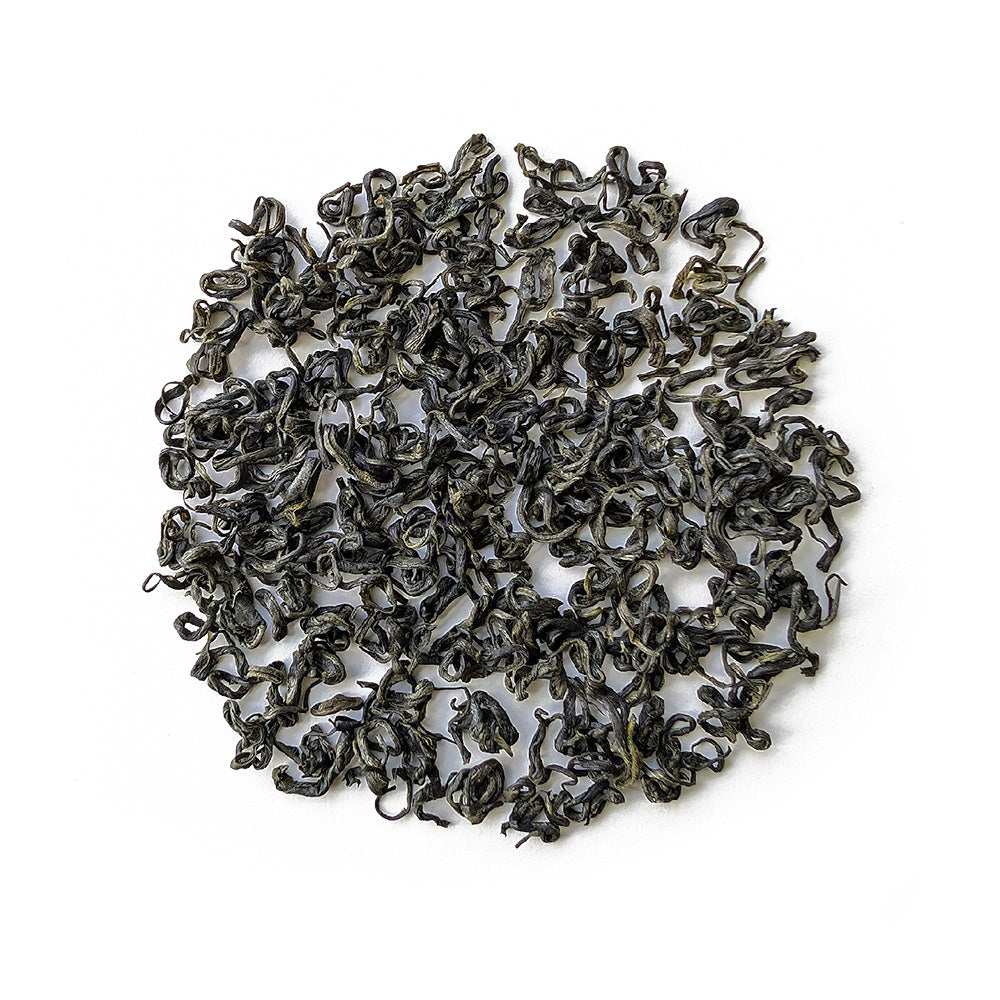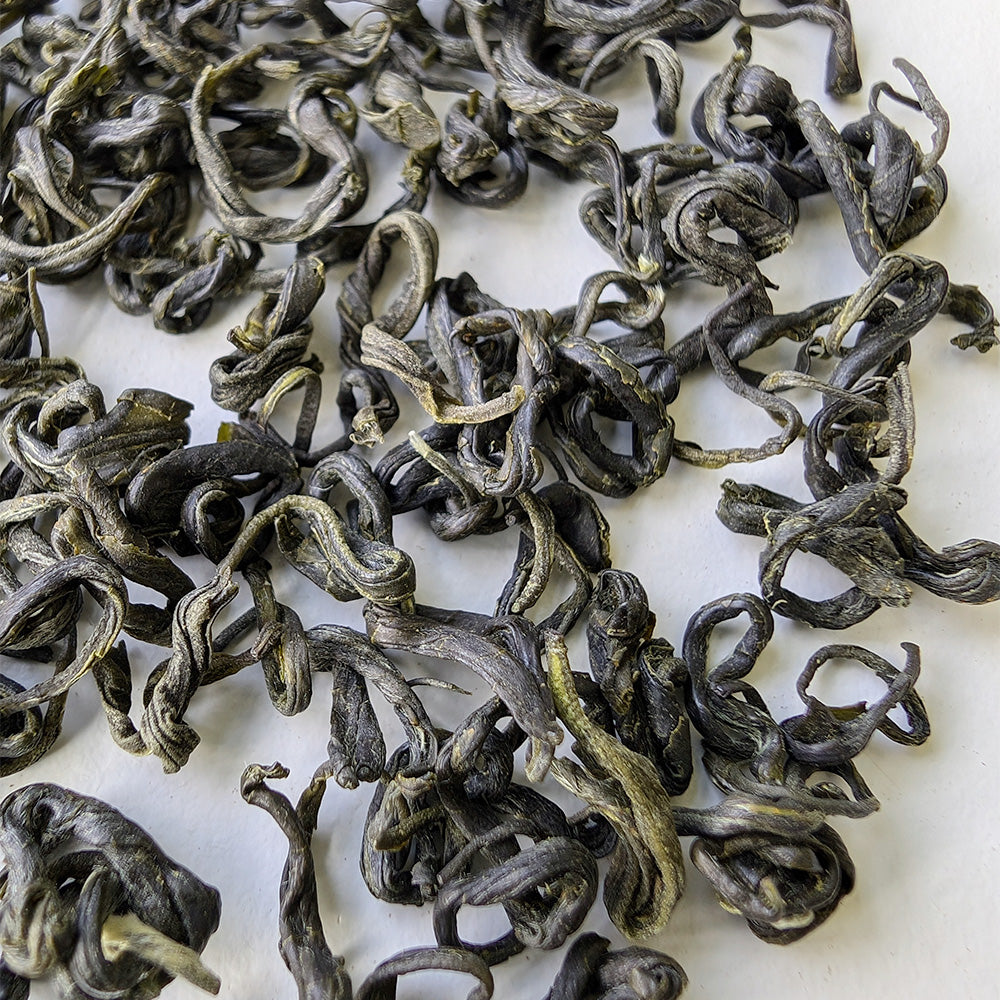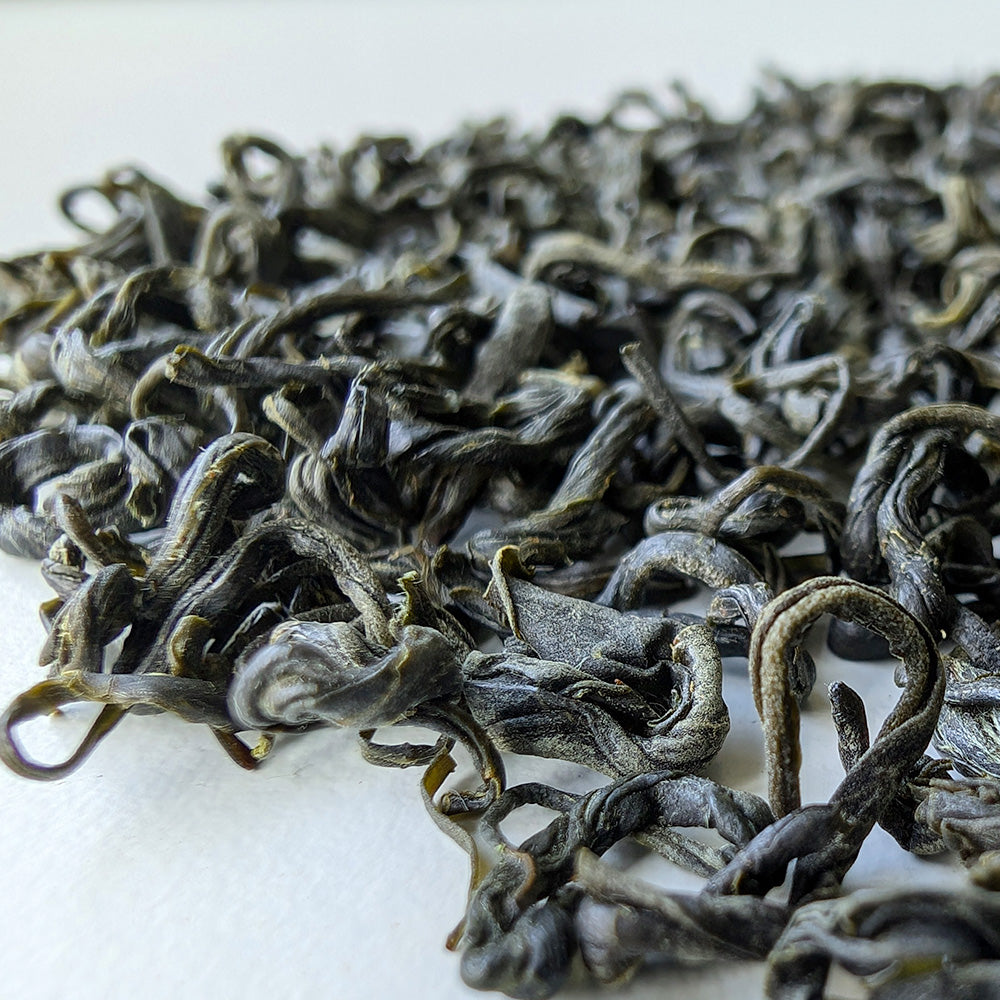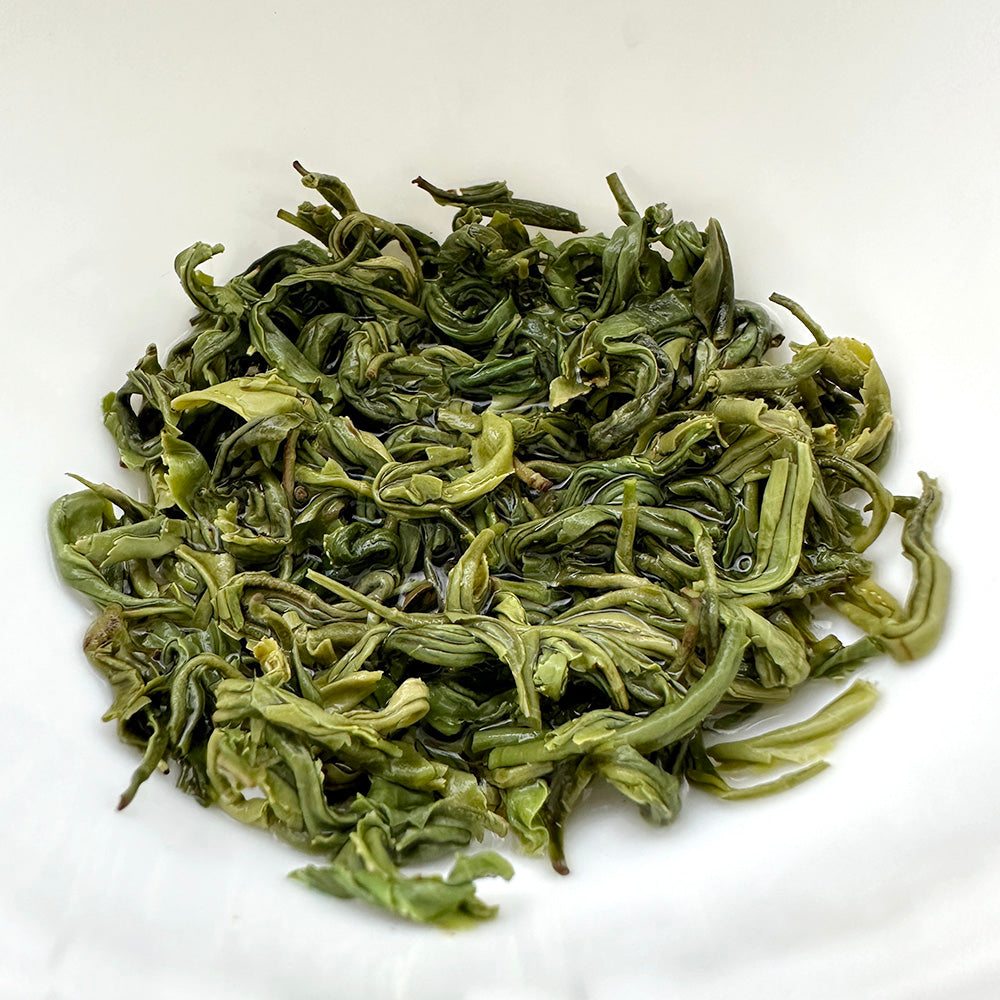Meng Ding Gan Lu (Sweet Dew) Green Tea
Meng Ding Gan Lu (Sweet Dew) Green Tea
Couldn't load pickup availability
A classic Chinese green tea from Meng mountains in Sichuan. The dry, curly leaves smell like nori and oak-moss. When steeped, the damp leaves are vividly green revealing its freshness.
This Meng Ding Gan Lu isn't what you normally expect from a green tea: it's not light, grassy, or floral. Instead of a refreshing and cooling taste, this Sweet Dew's aroma is savoury and intense, making it suitable for all seasons.
It's yellow-green liquor offers a well-rounded savoury, rich, corn-sweet and nutty tang with a sensational umami. The aftertaste is lingering sweet, hence the name 'Sweet Dew'.
Origin and Cultivar
The Meng mountains consist of 5 peaks which are Ling Jiao (菱角), Shang Qing (上清), Gan Lu (甘露), Jing Quan (井泉), and Pi Luo (毗罗). In China, Ding means 'Peak'. Hence, the first part of the tea name, refers to 'Meng Peak'. Teasenz' Meng Ding Gan Lu is harvested from the Jing Quan peak at around 500m elevation.
An authentic Meng Ding Gan Lu made be made from either the 'Fu Xuan #9' (福选9号) or 'Chuan Cha #9' (川茶9号) cultivar. Our tea is made from the latter cultivar.
The Meng mountains are also home to the famous Meng Ding Huang Ya yellow tea.
History and Processing
Meng Ding Gan Lu has a history stretching back thousands of years, making it one of the oldest loose leaf green teas available. Much-loved by Taoist monks, it was an imperial tribute tea in the Tang and Song dynasties.
Our Sweet Dew tea is still produced in the traditional, hand-crafted way. After picking, the leaves are withered and then charcoal baked and hand-rolled before being shaped, sorted and gently baked dry. The unique rolling and shaping process gives the leaves a furry and twisted look.
Origin
Origin
- Brand: Teasenz
- Year: 2024
- Season: Spring
- Origin: Jing Quan Peak, Gan Lu Mountains
- Type: green tea
How to Steep
How to Steep
Western method
Infuse 3 grams of Sweet Dew tea with 500ml water at a temperature of 80ºC and steep for 40 seconds. For a second steep increase the steeping time to 1.5 minutes
Traditional method
Infuse 5 grams of Meng Ding Gan Lu tea with 100ml water at 80ºC. Apply a 10 seconds for the first 3 steeps. Afterwards, increase the steeping time by 5 seconds for every next steep.
Cold-brewing
For cold-brewing you may use a bottle, jug, teapot or any brewing vessel that has a lid. Use 1.5 grams of green tea per 250ml of cold water. Cover the brewing vessel with a lid, and store in the fridge for 5 hours.
Shipping, Returns & Payment Methods
Shipping, Returns & Payment Methods
Delivery time: 1-10 day EU delivery. For estimates per country, please visit the shipping info page at the bottom of our website.
Import taxes?: because we ship from our EU warehouse, you will NOT be charged import taxes upon delivery if you're based in the EU. All taxes are already included in our prices.
Free shipping: available for orders over €59 for The Netherlands/Belgium, €80 for other EU countries (excluding Portugal & Hungary) & UK, and over €100 for other countries.
Returns: orders can be returned for a refund within 30 days. Products should returned in unopened, unused condition.
Share

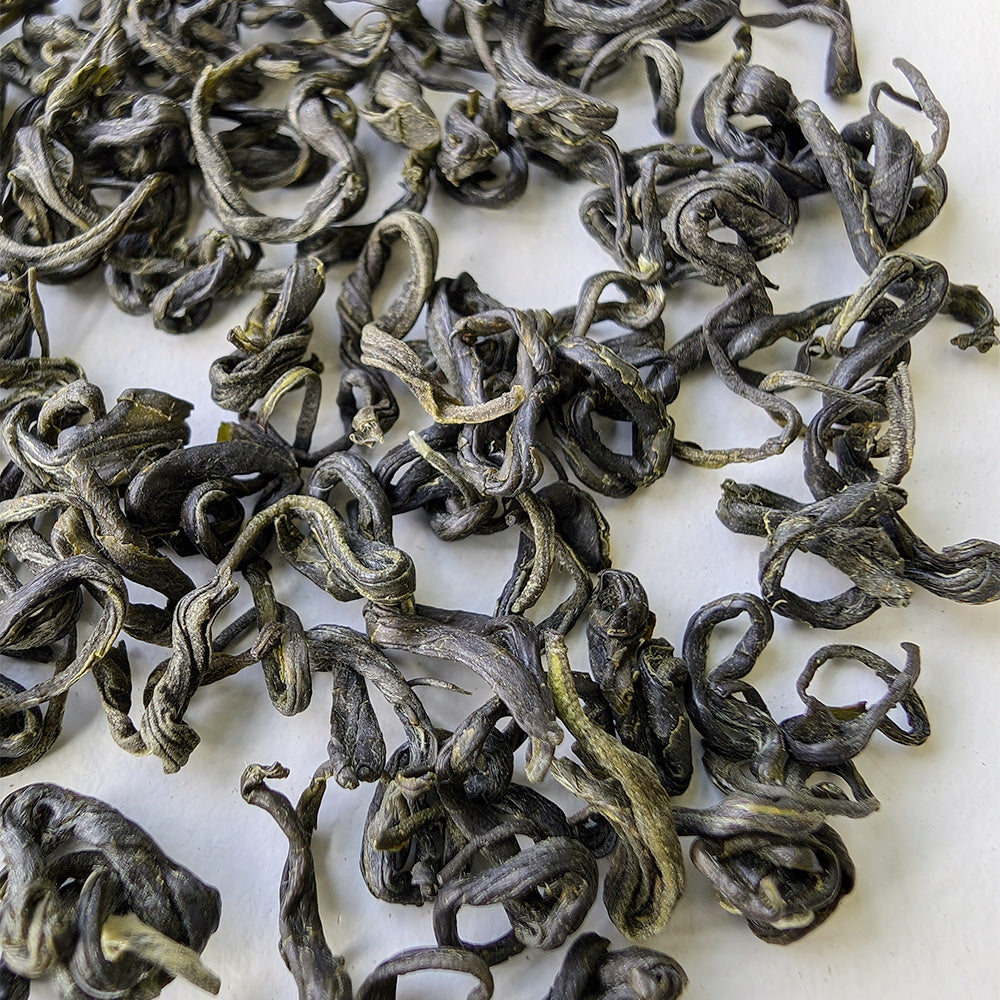
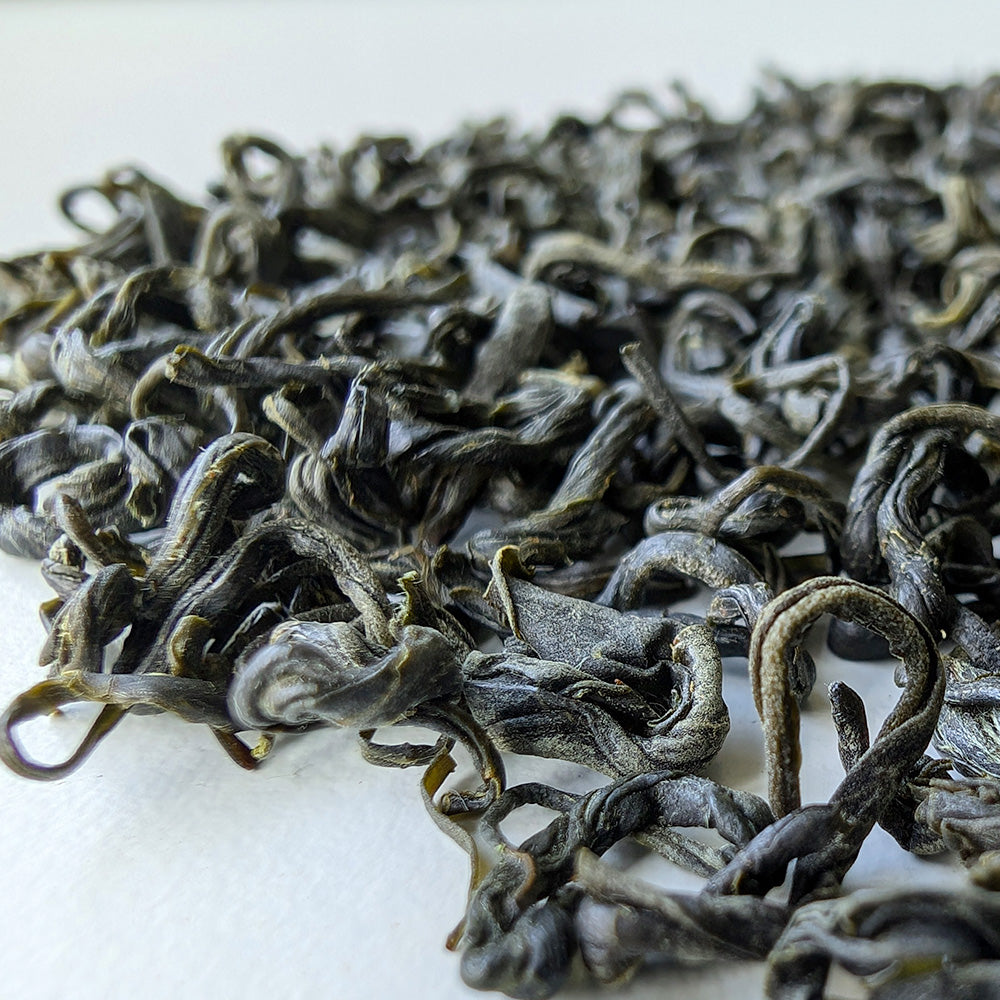
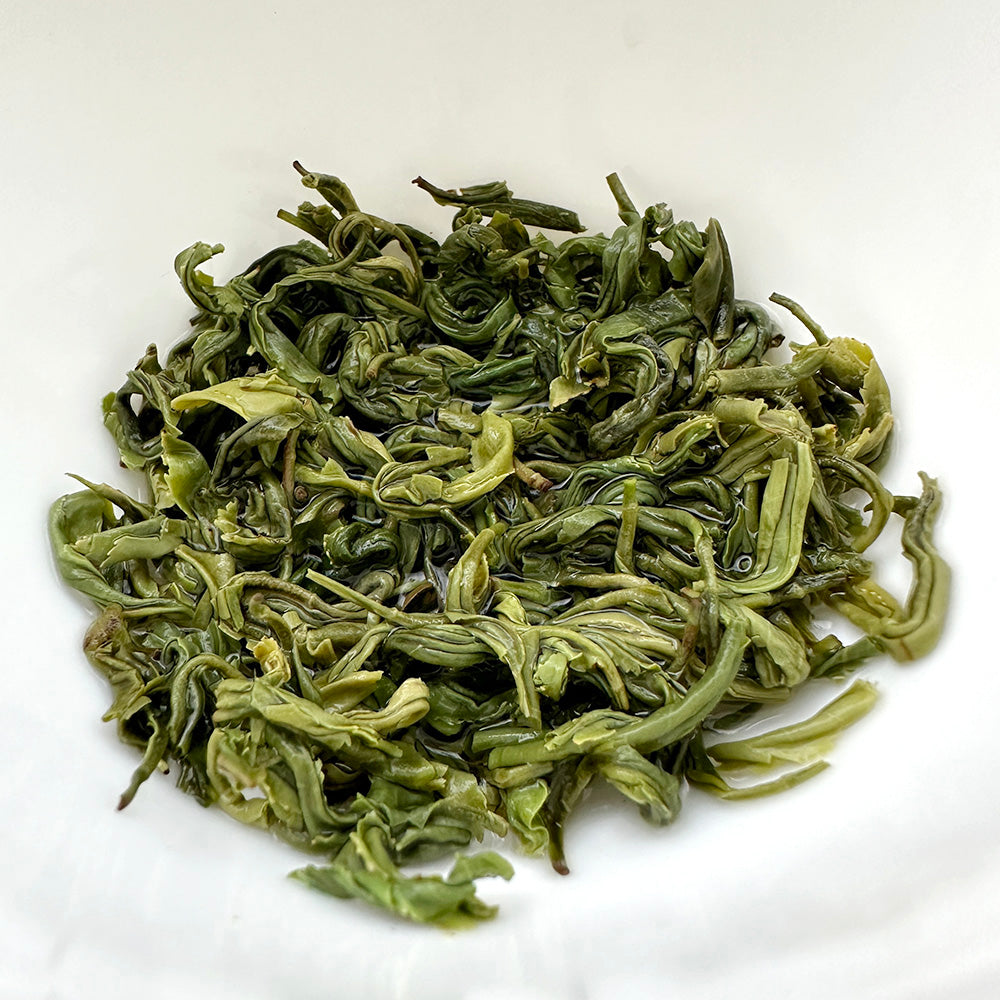
How this green tea is made
-
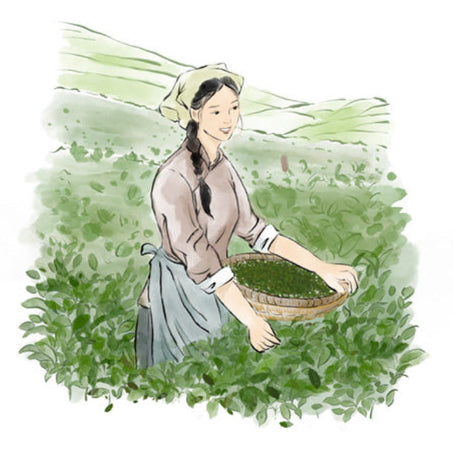
Picking
Tea leaves are hand-picked in the morning.
-
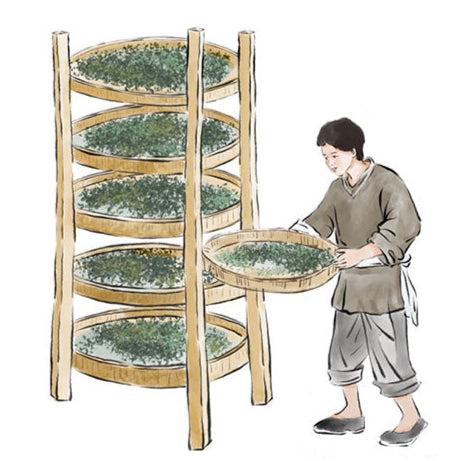
Withering
Leaves are shortly withered to eliminate some moisture.
-
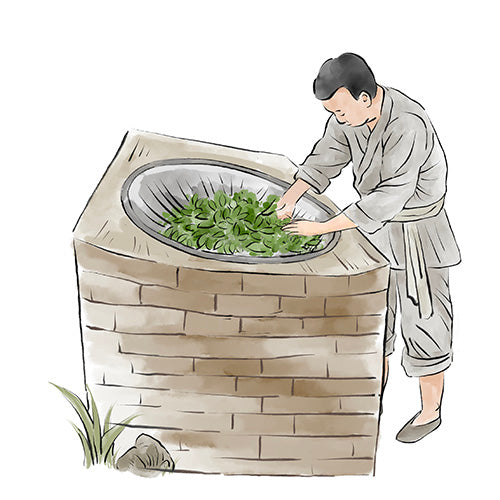
Fixation (pan-frying)
Leaves are roasted on a wok to halt oxidation.
-
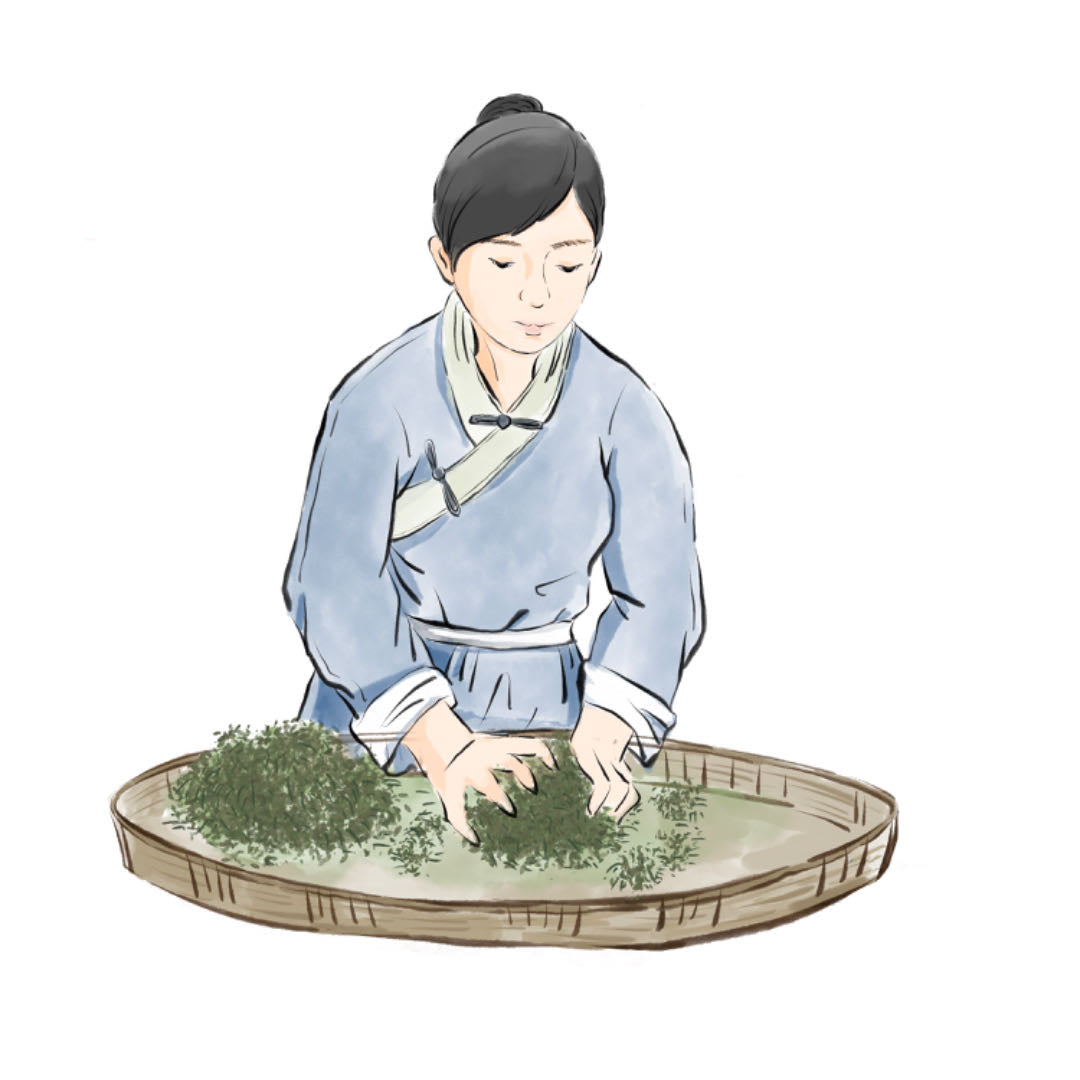
Rolling
Tea leaves are rolled to shape them as desired.
-
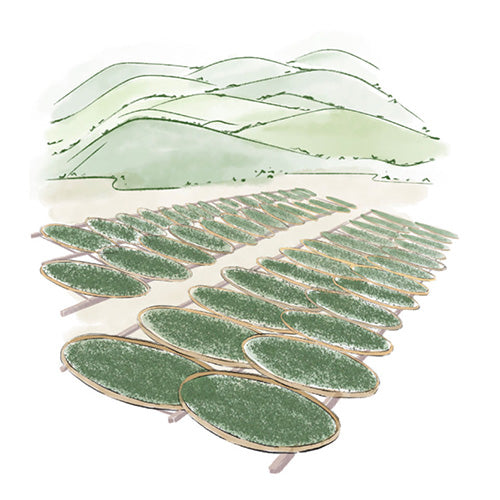
Drying
Tea leaves are dried to reduce moisture to a minimum.
Amazing tea, sometimes a nutty flavor
Brewing: 5g/100ml, 80°C, 10s x 3, +5s.
Dry leaves smell like cucumbers, spring grass and flowers. When wet, a camphor note appears.
The liquor tastes like green vegetables with delicate fruity notes and some raw hazelnut in the aftertaste. Very cheerful and optimistic.
Excellent tea . Love it. Good quality.

Our design work is inspired by the artwork “Along the River During the Qingming Festival” by the Zhang Zeduan in the Song Dynasty. Instead of displaying the daily lives of people in the capital of China (as the original artwork), we display the tea making process of farmers through the same bird’s eye perspective.
When examining our packaging design in detail, tea enthusiasts will observe the tea making process, featuring tea farmers picking, drying, rolling, and frying tea leaves. The tea is then tasted in a pavilion and transported by horses along the ‘ancient tea road’.
Together, the traditional Chinese landscape and tea making theme, symbolise heritage, tradition, and respect for hard work of tea farmers.

